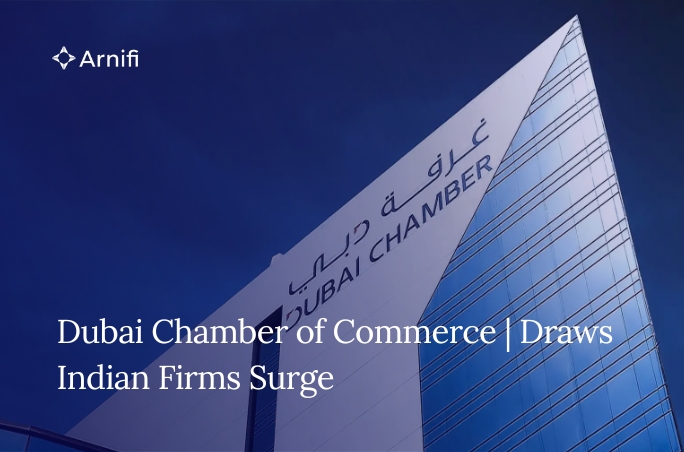Transitioning Business Models: Dubai Mainland Vs Freezone
by Shethana Nov 06, 2024  9 MIN READ
9 MIN READ

Dubai Mainland Vs Free zone? What to choose?
The UAE has a strong and varied economy. It attracts businesses from different fields and sizes. The country has moved from depending on oil to focusing on knowledge. There are big investments in roads, technology, and new ideas.
This positive thinking has created a competitive market full of chances. In the UAE, you can find opportunities in trading, tourism, manufacturing, and services. It is a great place for businesses to grow. However, to succeed, it is important to understand the rules and pick the right business model.
Mainland vs Free Zone: A Comparative Overview
Mainland Dubai is the area controlled by the Department of Economic Development (DED). Businesses on the Mainland can trade directly with the local UAE market without limits. However, they might need a local sponsor or an Emirati partner who owns most of the business, depending on what they do.
Free Zones are special areas in the UAE created with rules that attract foreign investments. These zones allow 100% foreign ownership, tax breaks, and easier company registration. They are good for quick setups and tax savings. Still, businesses in Free Zones might have restrictions when it comes to selling directly in the local market and may need a local agent or distributor.
Deciding between Mainland and Free Zone is important. You should think about your target market, how much foreign ownership you want, and what specific business activities you plan to do. This will help you figure out which option is best for you.
Key Factors Influencing Business Model Choices in UAE
Before choosing between a Mainland or Free Zone business, it is important to do thorough market research. You should identify your target audience, understand their needs, and know about the competition in the UAE market. Learning about local consumer preferences and market trends, as well as potential challenges, helps you make a good decision.
In Dubai Mainland, the Department of Economic Development (DED) oversees business activities. Some sectors may have specific rules or licensing requirements based on the type of business. It is important to talk to business setup specialists or legal advisors to follow local regulations and choose the right legal structure.
Also, your long-term business goals are key in selecting the best model. If your goal is to enter the local UAE market and build a strong presence, then a Mainland company would be a better choice. On the other hand, if your focus is on international trade and reducing tax obligations while operating in a specific industry, a Free Zone might be a better option.
Benefits of Establishing a Business in UAE’s Free Zones
Setting up a business in a Free Zone in the UAE has many benefits. One major advantage for foreign investors is that they can keep full ownership of their companies without needing local sponsors. This makes the setup process easier and gives better control over business operations.
Free Zones also provide various tax benefits and financial incentives. Depending on the Free Zone and the type of business, there can be no corporate tax for a certain time. This can greatly improve financial projections and allow for more chances to reinvest.
Tax Exemptions and Financial Incentives
One of the best things about starting a company in a UAE Free Zone is the great tax breaks available. Free Zone entities often do not pay corporate tax for a certain time. This can really help new businesses grow because it lets them keep more of their profits to invest back into their company.
Also, the financial outlook is usually better in Free Zones. Businesses can save money because they do not pay import and export duties on goods and services. This helps lower their costs and boosts their profits. It also makes them more competitive in the global market.
However, keep in mind that each Free Zone may have its own rules. Tax exemptions can be different too. It is a good idea to do your research and talk to tax advisors to fully understand the rules and how to meet your financial needs.
Complete Foreign Ownership and Repatriation of Profits
A key feature of UAE Free Zones is that they allow 100% foreign ownership. This means people or businesses from outside the UAE can start and run businesses here without needing a local sponsor or an Emirati partner. This setup makes things simpler than dealing with joint ventures. It gives foreign investors full control over their company’s operations and strategy.
Also, Free Zones let businesses send back 100% of their profits and capital to their home country. This open flow of money gives investors more financial freedom and helps them avoid issues that come up in other areas.
To make smooth financial transactions, it’s important to open a corporate bank account in a UAE bank. The bank account helps manage funds easily. You can receive payments, make transactions, and send profits back home when needed.
Advantages of Setting Up a Dubai Mainland Company
While Free Zones offer some advantages, starting a Mainland company in the UAE has its own benefits. The biggest one is that you can easily access the UAE’s thriving local market. Unlike Free Zone companies, Mainland firms can do business directly with local customers and companies without limits.
This direct access gives you the chance to reach a wider audience, create a strong local brand, and build partnerships with local businesses. Also, being part of the Mainland business scene leads to opportunities for government contracts and tenders, helping your growth even more.
Wider Market Access and Local Trading Opportunities
One main benefit of starting a Mainland company in the UAE is that you can access the UAE market freely. Dubai Mainland companies can trade without limits with the local people. They can also do business-to-business (B2B) deals with local firms. This access allows for a wider audience and a mix of different customers.
Having this direct access helps build strong brand recognition in the local community. This is very important for long-term success. When you work in the heart of the UAE market, you can better understand local preferences and design your marketing strategies to meet them.
Also, having a Dubai Mainland company helps you work better with local businesses. Forming strong ties with local suppliers, distributors, and service providers creates a good network. This can lead to smoother operations and might help to lower costs over time.
No Restrictions on Office Locations and Number of Visas
Dubai Mainland companies in the UAE can choose their office space from many options in different business areas. This is different from Free Zone entities, which usually work in set zones. Mainland companies can select the best locations for their needs and target market.
These companies also have more flexibility when it comes to getting employment visas for their staff. They face fewer rules about sponsoring visas for foreign workers in many different jobs, which helps them create a diverse and skilled team. The number of visas a company can get often depends on the size of their office space and their specific business activities.
However, it is important to follow the rules about visa quotas set by government departments like the Ministry of Human Resources and Emiratisation. Being informed about the latest visa rules and quotas is key to ensuring a smooth and legal process.
Legal and Regulatory Considerations
Understanding the laws in the UAE is very important, no matter what business model you choose. The UAE has clear laws based on civil law principles. They focus a lot on upholding contracts and business rules. Companies in the UAE must follow all laws, including those for setting up a company, paying taxes, labor relations, and protecting intellectual property.
It is a good idea to seek help from legal experts who know UAE business law. Legal advisors can give you advice specific to your needs, help you with registration, and aid in writing contracts. This can help reduce the risks of not following the law.
Understanding UAE’s Legal Framework for Businesses
Before starting a business in the UAE, you need to understand the legal requirements and rules for commercial activities. The UAE has a detailed legal system for businesses. It covers important areas like setting up a company, taxes, business deals, hiring, and intellectual property rights.
Navigating these legal details needs careful attention. Often, it’s best to seek help from experienced legal professionals. Getting advice from lawyers who know UAE business law is a good idea to make sure you follow local regulations.
Picking the right legal structure for your company is very important. You can choose to set up as a sole proprietorship, partnership, limited liability company (LLC), or branch office. It’s critical to know the legal impacts of each option. Liability, taxes, and ownership limits differ based on the legal structure you choose.
Compliance and Documentation Requirements for Mainland and Free Zone
Both Dubai Mainland and Free Zone companies in the UAE must fulfill specific compliance and documentation requirements to operate legally. These requirements ensure transparency, accountability, and adherence to local laws. Failing to comply with these regulations can lead to penalties and, in some cases, jeopardize the business license.
The initial company registration process involves submitting various documents to the relevant authorities. Documents typically required include a completed application form, business plan, passport copies of shareholders and directors, and proof of address. Depending on the business activity and chosen jurisdiction, additional approvals or licenses may be necessary.
In summary, it is very important to know the differences between Mainland and Free Zone business models in the UAE. Each model has its own benefits. Free Zones offer tax exemptions and financial help.
Dubai Mainland allows for wider market access and local trading. Think about what your business needs before picking a location. It is key to understand the legal rules and requirements to successfully set up your business. Whether you choose a Free Zone or Mainland company, the UAE is a good place for business growth. If you need more help with starting your business in the UAE, contact our experts for personalized advice and support.
Also Read: Discover the Benefits of UAE Mainland for Your Company
Top UAE Packages

Related Articles
Top UAE Packages



